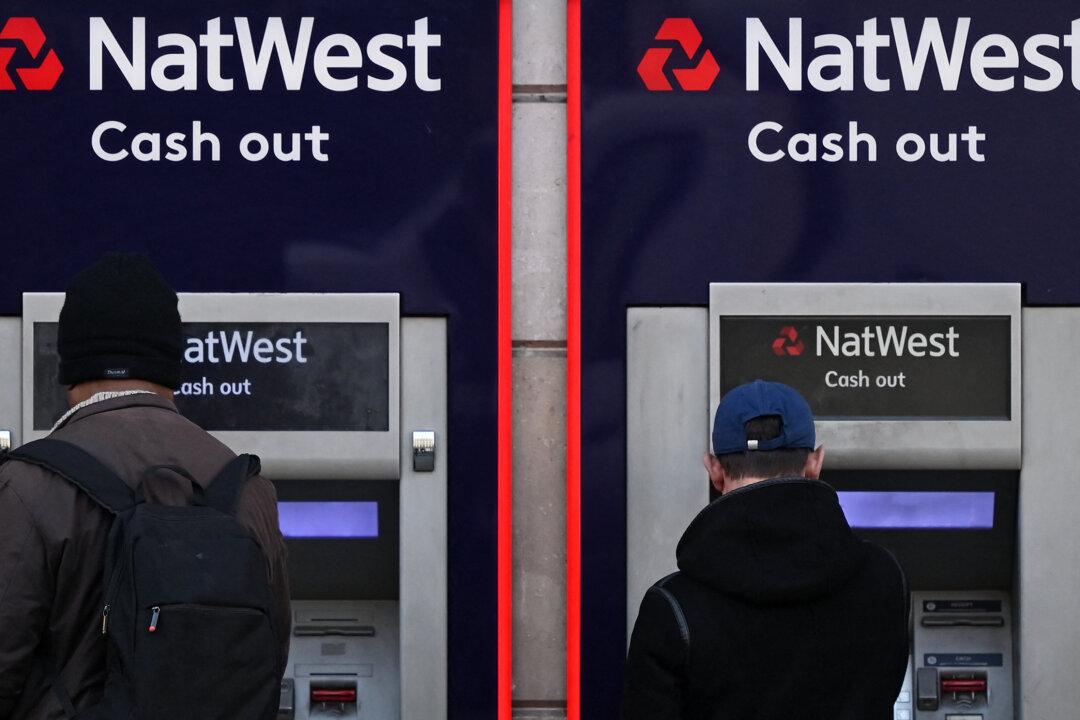
Customers use an ATM machine outside a NatWest bank branch in central London on Feb. 14, 2023. Justin Tallis/AFP via Getty Images
British banks could be fined if they fail to maintain a minimum level of free access to cash, the government stated on Aug. 18.
The policy statement came amid concerns that increasingly ubiquitous digital transactions will lead to a so-called cashless society.





